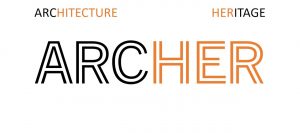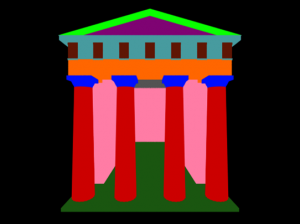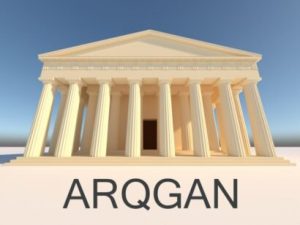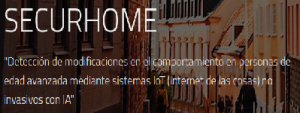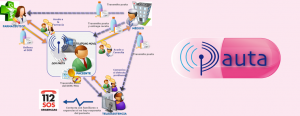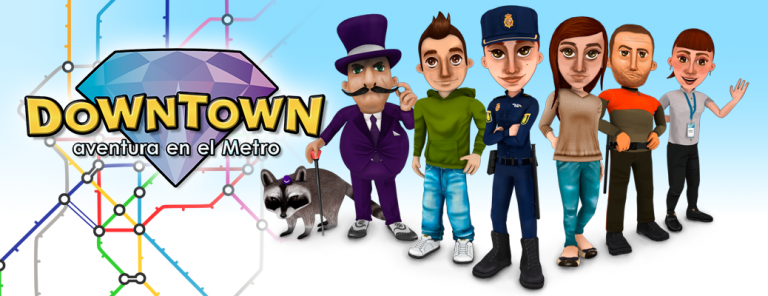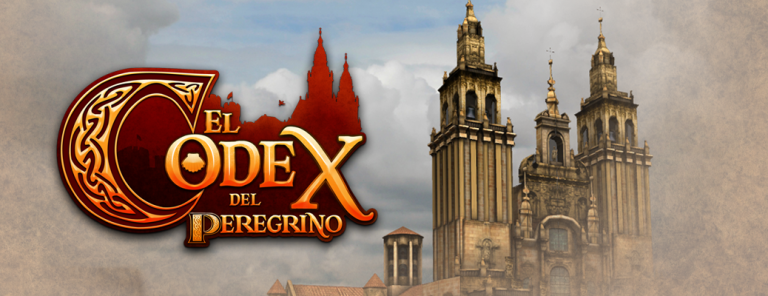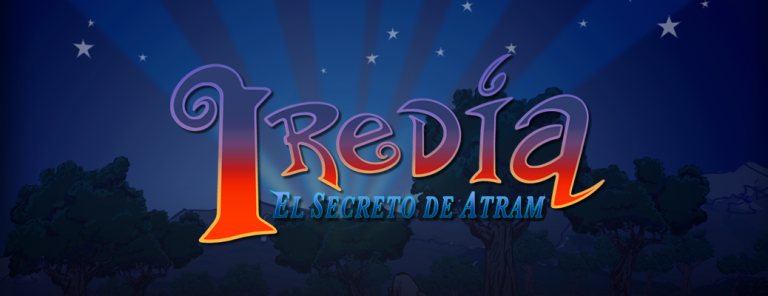Projects
We participate in competitive projects of various national plans, such as the Avanza Plan (Ministry of Industry, Energy and Tourism/Ministry of Industry, Tourism and Trade), the INNPACTO Program or Knowledge Generation Program (Ministry of Science and Innovation), in regional programs of the Community of Madrid and in our own programs of the Francisco de Vitoria University.
We participate in European projects of the INTERREG-V/FEDER program and we are currently involved in several Horizon Europe proposals.
We also carry out projects within our research lines with the sponsorship of private entities or with our own funding.
Artificial Intelligence
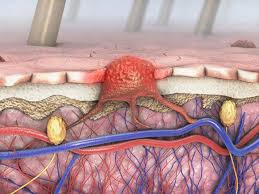
MELANOMA: Deep Learning for the improvement of diagnosis and anticipation of immunotherapies in melanoma.
Development of Artificial Intelligence models based on histopathological images and clinical data to distinguish between a melanoma and a non-melanoma skin lesion and to anticipate the behavior of the different immunotherapeutic treatments that can be applied to each patient. The use of hybrid models is proposed in order to make a diagnosis between nevus and melanoma and to measure the efficacy of a therapy. These hybrid models will use on the one hand convolutional networks to process the images and multilayer perceptrons for the patient's own data.
Call 2023 for UFV Research Project Grants
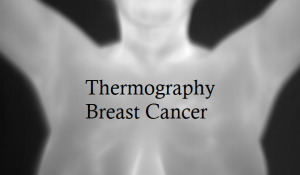
Design of Deep Learning models for diagnosis and treatment using thermal image analysis for the Adamo physiotherapeutic robot.
Development of Artificial Intelligence models based on thermal images and clinical data, applicable to the ADAMO Robot Software, to objectify and provide the health professional with: pre-diagnosis, recovery estimation, treatment proposal and comparative follow-up of the injury in patients with musculoskeletal pathology.
Call 2022 of the Innovation Check program of the Community of Madrid co-financed by the European Regional Development Fund (ERDF). Reference: 09/835799.9/22. Funding: 57,500 €..
ARCHER: Virtual Reconstruction of Architectural Cultural Heritage through Artificial Intelligence and Natural Language Processing
ARCHER’s proposal focuses on the generation of images using Natural Language Processing or NLP models combined with a generative model (GAN) so that, using a text input entered by a user, the image of a singular building of the architectural heritage is generate. The resulting NLP-GAN model will be able to restore photorealistic images in real time, thus facilitating the use of this technology in both professional (architects, public administrations, and heritage restoration companies) and tourist-cultural (museums, archaeological site interpretation centers or heritage buildings) environments.
Call 2022 for Projects for Knowledge Generation Projects. Reference PID 2021-126633NA-I00. Funding: 93,341€.
ARQGAN 2
In this project a PLN model will be implemented, and combined with a generative model (GAN), to generate images of a Greek temple from a text with its description provided by the user. The PLN model should be able to extract the most relevant information from the text and adapt it for input into the GAN network, which will be based on the ArqGAN model previously developed by the CEIEC team to reconstruct Greek temples from an image of their partially collapsed structure.
Call 2022 for UFV Research Project Grants
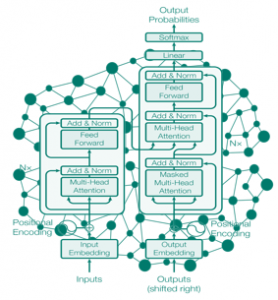
PLN techniques applied to biomedical signals
The analysis of biomedical signals, especially related to the field of neuroscience, has brought new solutions to the diagnosis and prognosis of these diseases. PLN techniques offer a tool capable of processing sequential data, and can be adapted to process this type of signals, favoring the development of diagnostic biomarkers and to assess the staging of the disease.
ARQGAN
During the last decades, three-dimensional computer modeling tools have made it possible to address the virtual reconstruction of buildings. The problem is that the 3D models respond uniquely to each case study, making the workflow for obtaining reconstructed images slow and laborious. The ARQGAN project proposes the application of GAN (Generative Adversary Networks) to obtain virtual reconstructions of historical buildings from virtual images.
Call 2020 for UFV Research Project Grants

Cost-effective breast cancer screening using mammography, ultrasound and thermography
Development of a comprehensive decision support system for breast cancer screening, through a cost-effectiveness analysis taking into account all its risk factors. The system will include not only mammography and ultrasound, as in other studies, but also breast thermography, a technique whose cost and effectiveness has never been analyzed. For this, recent advances in Deep Learning for the interpretation of medical images will be applied.
2019 Call for R+D+i Projects of the State Program for the generation of knowledge and scientific and technological strengthening of the R+D+i system. (2020-2022). ref. PID2019-110686RB-I00. Funding: 81,433€.

MOGA-TR: Multi Objective Genetic Algorithm
The MOGA project seeks to improve energy efficiency in buildings by automating the monitoring of their HVAC systems. To achieve savings, several research areas are necessary, such as the development of prediction models, control engineering, the use of optimization tools, the handling of building management systems and knowledge of the most innovative aspects of the HVAC area. The proposed research focuses on calculating the optimal control parameters needed to achieve the mode of operation that at any given time guarantees comfort, leads to maximum energy savings, reduces the cost of the electricity bill and makes the equipment work at its maximum performance.
Call 2020 for UFV Research Project Grants
SECURHOME
Development of a mixed Hardware/Software system to detect changes in the behavior of older people through non-invasive IoT systems and AI techniques. The system allows detecting if the elderly person is at risk or not through analysis with Machine Learning his daily behavior at home: movement, sound, temperature, use of the TV, etc.
Call for INTERREG V-A Spain-Portugal 2014-2020 - European Regional Development Fund (ERDF).
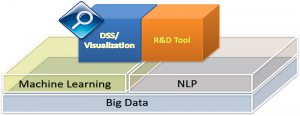
DARR: Data Analysis for Radiological Reports
DARR design and apply Machine Learning Algorithms to radiological reports to improve diagnoses quality resulting in decreasing typos, structuring the content easier to understand, detect incomplete or incorrectly written reports. Furthermore, computational analysis of the data collected in medical diagnostics opens promising new research fronts.
In collaboration with the Central Radiodiagnosis Unit of the Community of Madrid.
PAUTA: Integrated support and assistance system for polymedicated patients.
Development of a mixed Hardware/Software system capable of providing polymedicated patients with medication according to the prescribed guidelines transmitted from the doctor's computer and making it easier for health personnel to monitor and monitor the position and activity of patients in mobility, 7/24 regime.
Call Avanza Competitividad I+D+i (thematic area: Health and social welfare) - Plan AVANZA2. Ministry of Industry, Tourism and Commerce. Reference: TSI-020302-2010-131 (2010-2012). Funding: 271,232 €

Audiencia 360
Development of a technology that provides viability to the analysis and description of the sales segments that may exist in an audience in order to personalize the advertising message to be transmitted taking advantage of the technological characteristics of the advanced TV platforms (for example, connected TV) closely related content - audience - publicity.
Digital Economy and Society Strategic Action - Scientific and Technical Research Plan. Ministry of Industry, Energy and Tourism. TSI-100600-2013-68 (2013-2016)
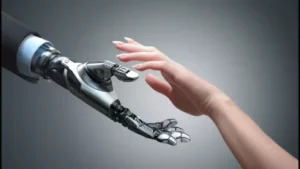
ROBoASIST
Assistive robotics project for the elderly. The goal is to achieve the integration of the elderly and disabled through games made with mobile robots and wireless sensors, as well as the improvement of their cognitive and psychomotor skills.
Serious Games
Downtown: a subway adventure
A 3D adventure game designed specifically for kids with mental disabilities and, through a classic story of cops and villains, collect everyday situations they face daily when using the metro network. The intention is to create a funny and accessible adventure game to get their attention and make them easily learn how to move in the subway.
En colaboración con la Fundación Down Madrid
The Pilgrim´s Codex
Videogame set on Saint James´ Way to bring young people closer to their culture and their historical background. The game recreates the journey of a medieval knight who is involved in the most important moments in the history of the Way. From Saint Jean Pied de Port to Santiago the trip hides adventures, stories and legends never revealed that take place throughout the towns and the places along the way.
"Avanza Contenidos de Interés Social" - Plan AVANZA2. Ministerio de Industria, Turismo y Comercio. TSI-070100-2010-52 (2010-2012).
Iredia: Atram´s secret
2D-platform videogame for PC and Xbox developed by CEIEC as part of the initiative El Mundo en Silencio that transmits in a playful way that deaf people are one more member of our society. The videogame is available through the online games platform of Microsoft Xbox Live Indy Games and through direct download from the Iredia website in the PC version.
En colaboración con Microsoft y el Real Patronato sobre Discapacidad

CUBE
Development of a platform for the creation of reconfigurable videogames for educational purposes that can be used for different educational actions and pedagogical objectives depending on the teacher and the subject. The challenges that the player faces are edited with a tool that is also developed as part of the project, thus allowing the same game to be reused.
eLearning
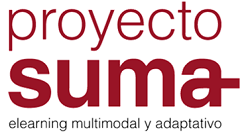
SUMA
Integration of eLearning services via OKI/OSID standards for the creation of a layer of elearning services that allows to separate the platform that is at the base of the new applications and functionalities that are to be incorporated in the business or academic field.
“Acción Estratégica de Telecomunicaciones y Sociedad de la Información” - Plan AVANZA. Ministerio de Industria, Turismo y Comercio. TSI-020301-2008-9 (2008-2009).
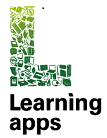
Learning Apps
Creation of a "store" of applications, contents and educational services available through the Internet. These "Apps" can be integrated with a single click on various platforms and educational environments or used as services directly from the Internet. In other words, the aim is to create an educational services store that will allow existing training providers to expand their virtual platforms, and in turn, encourage the emergence of new players who can create their learning environments without having their own infrastructure.
Programa INNPACTO. Ministerio de Ciencia e Innovación. IPT-430000-2010-012 (2010-2012)

